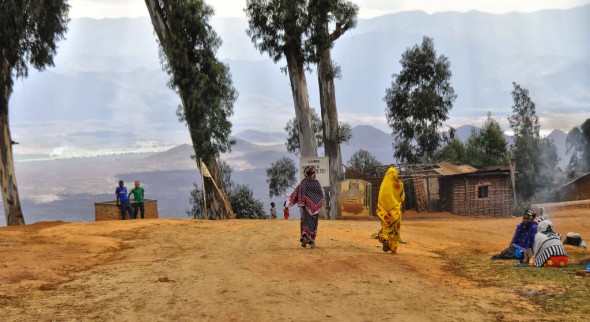TakePart | May 20, 2014
While nearly 20 percent of people worldwide lack access to electricity, the rate is even higher in the East African nation of Tanzania: 84 percent of the country is off the grid. In the country’s rural areas, access is even sparser.
Sounds like a sweet spot for solar, right? But the up-front costs for a solar panel, battery, and charger are out of reach for the average village resident, not to mention the additional costs of equipment maintenance and repair. Rent-to-own schemes, which require users to pay for their system over time, aren’t practical either, given today’s rapid advancements in technology. So kerosene lamps and diesel fuel generators have remained the default go-to for most.
What if rural Tanzanians could bypass the financial barriers and lease their solar systems instead? What if this enterprise could create local jobs by employing agents to sell electricity services door-to-door?
That’s the business model of Off.Grid:Electric, a start-up founded in 2012 by a trio of American social entrepreneurs.
“We’re the SolarCity of Africa,” said cofounder Erica Mackey. She was originally interested in finding a solution to last-mile rural health care delivery in Tanzania, but switched to energy services after locals told her the lack of access to electricity was the largest obstacle to rural development. “We realized that the biggest barrier to implementing solar on a wide scale was because customers had to assume a lot of risk. So we take on that risk and deliver energy services.”
Off.Grid:Electric customers get a solar panel and metered battery storage and have electrical accessories (such as a charger) installed in their home. They prepay for as much electricity as they want—24 hours of power costs the equivalent of 20 cents a day, or about $6 a month—about what the average Tanzanian household spends on a night’s worth of kerosene for a single lantern. Families might use as many as three lantern loads per night, depending on the circumstances, Mackey says. Solar power can provide 35 times more light—and charge phones. An app enables subscribers to re-up their accounts using their phones.
Affordable electricity provides families with more time for work, study, and leisure activities. And clean electricity offers big health and environmental benefits over kerosene and diesel. Apart from the carbon emissions associated with the fuels, Mackey said that operating a single kerosene lamp indoors for four hours is the equivalent of secondhand smoke from two packs of cigarettes.
By using the “Avon lady” sales model that deploys locals to sell Off.Grid:Electric’s services door-to-door—more than 300 agents are in the field—the company has created jobs that pay three to four times more than what individuals were earning before, Mackey says.
The company operates in three regions of Tanzania and has enrolled more than 70 percent of homes in some villages, according to Mackey. Thanks to a recent $7 million funding round from high-profile investors such as SolarCity, Vulcan Capital, and Omidyar Networks, Off.Grid:Electric plans to move into other parts of the country, anticipating it will have close to 1,000 agents on the ground by the end of the year. It hopes to expand to Uganda and Kenya.
“That’s one of the most exciting things we can do—to make an African rooftop investable for a Western investor,” Mackey said. “That alone puts resources behind a big problem.”
Photo of Mtae village, Tanzania by Rod Waddington courtesy Creative Commons
View the original story here.
